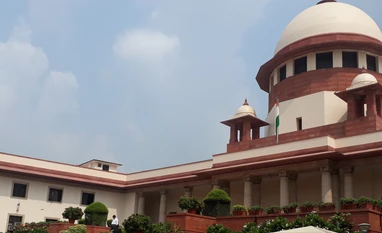The Supreme Court on Friday refused to entertain a plea seeking implementation of the 2012 recommendations of the Election Commission regarding the cooling-off period to prevent public servants from contesting polls immediately after retirement or resignation.
A bench of Justices Surya Kant and Sandeep Mehta allowed petitioner G V Harsha Kumar, a former parliamentarian, to withdraw the plea with liberty to approach the appropriate authority.
The plea had sought directions to the EC and the Centre to implement the 2012 recommendations of the poll panel and the July 2004 report of the Committee on Civil Service Reforms to prevent government servants from contesting elections to the legislature, parliament or state assembly on a political party ticket, immediately after retirement or resignation from service, by imposing a cooling-off period.
It had also sought a direction from the Centre to grant one pension to the bureaucrats who have served as members of assembly and parliament.
The plea was filed in the apex court through advocate Sravan Kumar Karanam.
"This report was of 2012," the bench observed, adding, "You want to withdraw or argue?".
More From This Section
The counsel said he would withdraw the petition.
The plea said the petitioner had served as a Member of Parliament of Lok Sabha between 2004 to 2014.
It said the EC in 2012 and the committee appointed by the Centre for Civil Service Reforms had recommended cooling-off period for bureaucrats and public servants entering into politics and contesting elections.
"But despite these recommendations were made two decades ago, they are not being implemented resulting several bureaucrats, judges obtain voluntary retirement from the public service and choose to contest elections immediately by joining a political party without a cooling-off period," it said.
"The officials/public servants who would have helped by way of unlawful means were rewarded by certain political parties by way of offering them tickets to contest in the assembly and parliament elections," it claimed.
The plea said that civil servants/judges often have access to sensitive and confidential information during their tenure and allowing immediate transition to a political role may raise concerns about the misuse of privileged information for personal or party gain.
"A cooling-off period ensures that civil servants have the necessary time to disassociate themselves from their previous roles and responsibilities," it said.
)